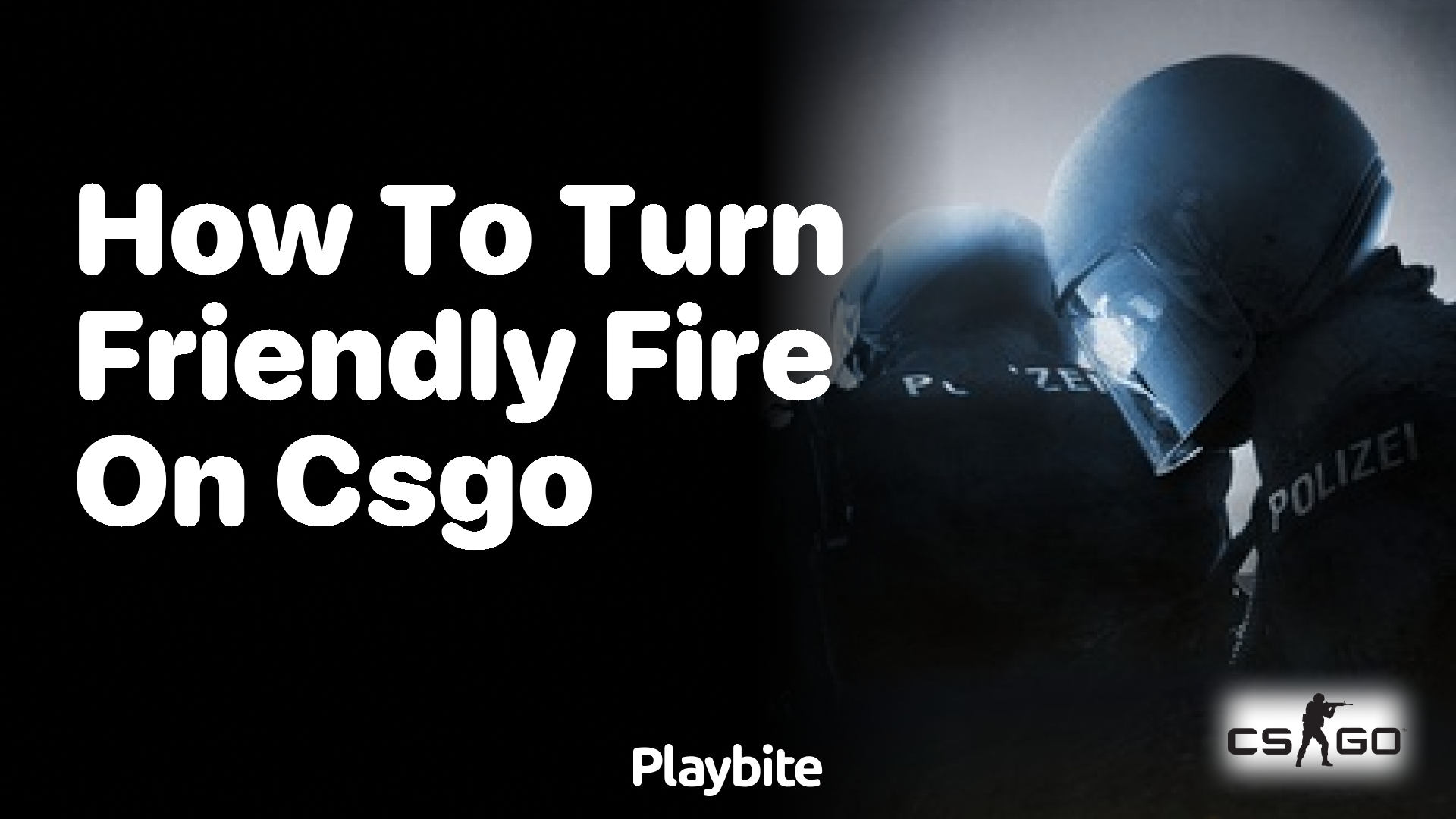Beauty Reports: Trends & Tips
Stay updated with the latest in beauty trends, tips, and product reviews.
Friendly Fire: The Double-Edged Sword of CSGO Chaos
Explore the thrilling chaos of CSGO's friendly fire! Discover how this double-edged sword impacts gameplay and strategy. Don't miss out!
Understanding Friendly Fire: The Mechanics and Impact on CSGO Gameplay
Understanding Friendly Fire in Counter-Strike: Global Offensive (CS:GO) is crucial for both new and experienced players. Friendly fire refers to the ability for players to unintentionally harm or kill their teammates during a match. This mechanic, inherent to many tactical shooters, adds a layer of complexity to gameplay. Players must remain vigilant and communicate effectively to avoid inflicting damage on their own team, particularly in high-stakes situations. The consequences of friendly fire can be detrimental, often leading to a shift in momentum, loss of morale, and sometimes even the match itself.
The impact of friendly fire on CS:GO gameplay cannot be overstated. Effective communication and teamwork are vital in minimizing its occurrences. Many players utilize in-game voice chat or tools such as pinging to notify others of their movements and strategies. Additionally, players must consider weapon selection and firing positions, especially in tight quarters where visibility is limited. The strategic implications of friendly fire are profound—successful teams often develop tactics that account for the potential misfire of teammates, enhancing their overall gameplay and competitiveness in matches.

Counter-Strike is a multiplayer first-person shooter game that has garnered a massive following since its release. Players join either the terrorist or counter-terrorist team, completing objectives such as bomb defusal or hostage rescue. Among the various content updates, the winter offensive weapon case features unique skins and weapons, adding an exciting layer of customization to the gameplay.
The Psychology of Teamwork: How Friendly Fire Shapes Player Behavior in CSGO
In the competitive landscape of CS:GO, teamwork is paramount to achieving success, yet the phenomenon of friendly fire introduces a unique psychological dynamic among players. This unintended harm can lead to increased levels of frustration, anxiety, and mistrust within a team. Players may become overly cautious or aggressive, anticipating that their teammates might inadvertently damage their performance. Such behavior not only affects individual gameplay but also alters group dynamics, often fostering a culture of blame or defensiveness that can disrupt team cohesion.
Understanding the psychology behind teamwork in CS:GO requires examining how friendly fire shapes player behavior. When teammates realize the impact of their actions on one another, they often adjust their strategies to mitigate risks. For instance, they might adopt more defensive playstyles to avoid accidentally hitting their companions, which can lead to a reduction in overall team efficiency. Alternatively, some players may develop a sense of camaraderie, using humor and light-hearted banter to diffuse tensions, ultimately strengthening their bond. In this way, friendly fire serves as a catalyst for both conflict and cooperation, highlighting the complexity of interpersonal relationships in high-stakes gaming.
Is Friendly Fire a Blessing or a Curse? Exploring the Pros and Cons in Competitive Matches
In competitive gaming, the phenomenon of friendly fire has sparked significant debate among players and strategists alike. On one hand, it introduces an element of realism and encourages players to practice caution and communication, fostering teamwork. For example, in team-based shooters, the potential for self-inflicted damage can lead to more strategic gameplay, where players must think twice before shooting or launching grenades. This heightened level of awareness can elevate the game's intensity and excitement, often resulting in memorable moments that test the skills and coordination of a team.
Conversely, friendly fire can also be viewed as a curse, contributing to frustration and confusion within a match. Accidental eliminations can lead to the loss of crucial rounds, which may demoralize players and create an atmosphere of blame and distrust. Players may feel hindered by the risk of inadvertently harming their teammates, causing them to play overly cautiously, which can dilute the pace and fun of the game. Ultimately, whether friendly fire is a blessing or a curse depends on the dynamic of the specific match and the individual players involved, making it a complex factor to navigate in competitive settings.